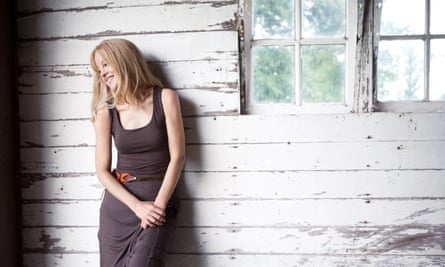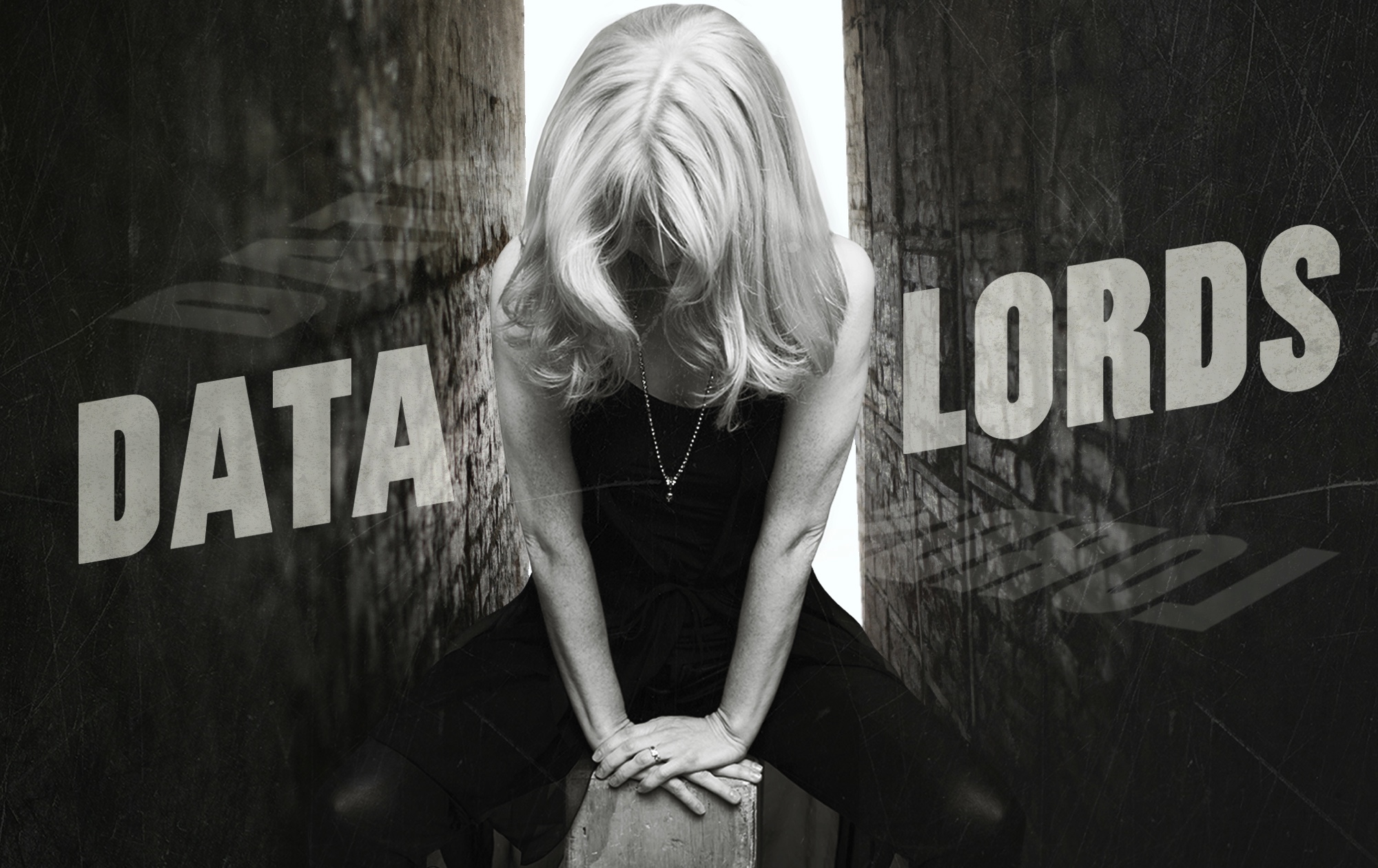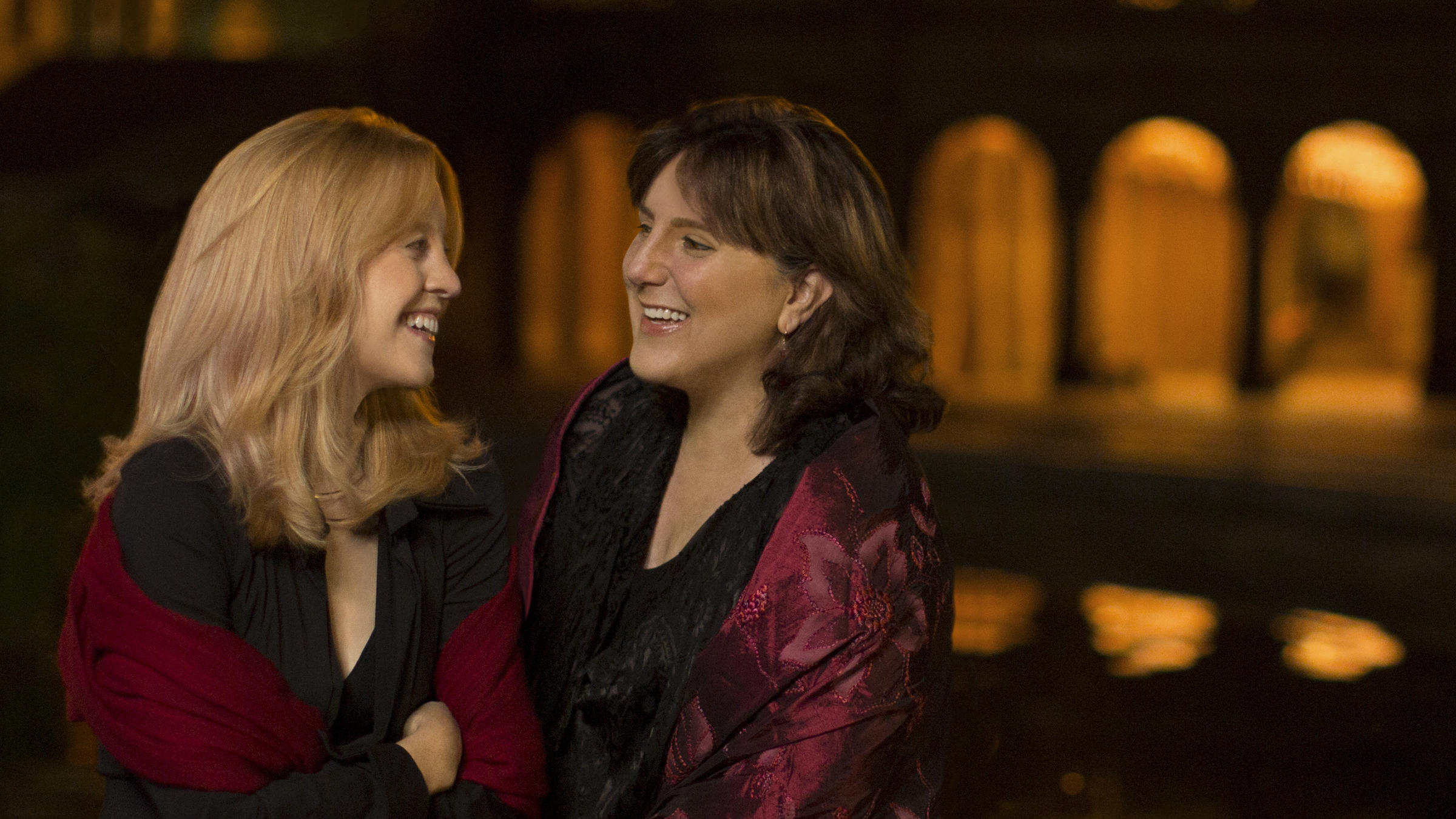Maria Schneider: Someone like me couldn’t pay for a sandwich on Spotify income.

First Lady of modern jazz orchestra – great Maria Schneider needs no introduction. Everybody knows that she is a great composer and band leader, but only few are aware of the fact, that she is also a writer, who actively fights against big corporations. In this interview she told me about her band, first compositions in college and last release “Data Lords”. But the main subject of this conversation focuses on music industry, big data and policy of streaming services.
Is Schneider a German surname? Do you have some German roots?
It is a German surname. My family lives in U.S for a long time, but my grandparents came from Holland. So I have Dutch, German and French roots.
Do you remember the specific moment when you’ve made decision about becoming a professional musician?
When I was pretty young, I used to write music for my recitals, but it was nothing very impressive. I didn’t have a lot of confidence. But then in college, during musical theory classes, we had a little exercise: writing music for string quartet. One of my teachers said that my composition was really good and recommended that I add composition to my major studies. I was so happy, that somebody thought I might have what it takes to become a composer. That was freshman year of college. Then I start composing more and more. I was listening to so much jazz, and that influenced my writing. Finally, my composition teacher, hearing so much jazz in my music, suggested that I should watch the big band rehearsals at the University and try writing for the band. That’s how it began.

Have you ever try to create music for smaller groups?
Not really. There’s a quite few people, that have made small versions of my music. Norma Winstone did beautiful version of “Hang Gliding” that she calls “Among the Clouds”. There are a lot of people that have recorded different versions of a piece of mine called “Choro Dançado”. People do it on their own.
What does your work space look like? Do you have a special space for creating music?
I live in a small apartment in Manhattan, I have piano there with the writing board and table next to it. A few years back we got the house in a country that we go to on the weekends. We’ve been here more often during Covid-19. I have a little bit more space here, but also more distractions like birds, butterflies and all that nature that surrounds me.
I would like to ask you about your orchestra: How long did it take to create your orchestra? Is it a constant squad? How big is it? What kind of features musician should have to become a part of your band? Did you make some kind of audition for them?
It’s kind of an evolution. In the beginning I was looking for people whose playing I liked, people I had worked with, people I had heard about. Now it is very rare that there is change in my band. Here and there, somebody will move and occasionally I make a change, but it is pretty rare. When I make changes, I talk with my musicians to get their recommendations. I remember when I first heard the trombone player, Marshall Gilkes. I thought: Wow, I would love to work with him. And then my bass trombone player said that I have to hear his friend – Ryan Keberle too. I heard them and hired them both, and they are fantastic. They, in turn recommended Mike Rodriguez (trumpet, flugelhorn) to the band. I knew Mike before, but I didn’t know the full extent of his playing. Thanks to this recommendation I gained another great musician to my band.

Does orchestra cooperate with some institution?
No. I don’t apply for grants or anything. We function like a group of independent musicians. It’s fluid. They are not employed by me; they don’t have to play every gig that I give them. It’s pretty loose, but financially I have to make sure that when I get gigs, organizers will pay enough for the band, travel costs, the hotel, otherwise I don’t take the gig. Organizations or institutions don’t support us. We get money directly from gigs. Of course, institutions support those performing arts centers.
We were waiting for new long play from you, for 5 years. That’s quite a lot of time. What did you do during this time? What was your main project during that period?
It was such a busy time for me: writing music, doing gigs, traveling and teaching. It takes a lot of time to write such amount of music, rehearse and perform it. Besides, I always do some rewrites. When I decide that I’m going to make a record, I have to book the studio almost a year in advance. When you have to schedule 18 busy people it’s not easy thing to organize. Literally, in 2019 there were 4 days in whole year, that I could gather whole orchestra together, and during those 4 days we recorded “Data Lords.” I have to plan everything way in advanced. Thank goodness, we weren’t recording during COVID-19, because I would have had cancel it and then put it off for who knows how long. Another one, two years? Luckily I recorded it right before whole Pandemic happened.

How do you plan to promote “Data Lords” during Pandemic of Covid-19? What is the biggest challenge for you in this situation?
The biggest problem is that we can’t do perform the music live. After concerts we sell a lot of DC’s and during concerts we can finally have a chance to perform the music. Now, by the time we get a chance to perform, the record may be out for more than one year. On the other hand, this subject matter of “Data Lords” is very present right now. We are being drawn out of ourselves into this world of the Internet and being used, so that big corporations like Google, Facebook, Amazon can learn about us, target us, send ads to us, politically manipulate us. At the same time, most of us are now at home and finally have time for things like gardening. I think many people are taking the time to go outside, doing things that are more connected to what’s real. Furthermore, I think that, in this time people are becoming more aware how politicized everything is, how left and right things are, how much we are being manipulated by the media and social media. There’s a wonderful documentary on Netflix now called, “The Social Dilemma.” It talks about reasons why we are likely seeing such violent protests, why things are getting so out of hand. I would say it’s because of social media, big data and manipulation of our minds. When people surf the news: you will surf the news that they determine you want to read, I will surf the news that they determine that I want to read. So our sense of truth and what’s real is not the same. Therefore you think I’m crazy and I think that you are crazy. In our world, there’s no truth in the middle, because everybody is being served a slanted version of something. It’s really scary and I hope people will become aware of this phenomenon. Now, people are sitting at their homes and have more time to be aware. And that’s good. “Data Lords” is not music for listening while driving a car. It’s not even safe (laugh). It’s music to really listen to, to make you think and become aware.
You are very consistent about your music in the Internet. It is impossible to find your studio recordings on Youtube, Spotify, or other free streaming services.
I put 5 songs on Spotify. Unfortunately, there’s a lot of music on Youtube that I didn’t authorize. It is a complex decision whether to take it down, because some of the people that put it there are student groups performing my music. I don’t want to insult them by taking it down, but it’s illegal that they uploaded it without my permission. Their covers compete with my own music. People hear students playing one of my pieces and they may even think that this is my own group and it’s not.

Why you decided not to share with your art via those channels?
“Data Lords” cost me 250 000 dollars to make – maybe even more. It’s a lot. The problem with YouTube or Spotify is that my music is critically acclaimed, but my audience is very small. The jazz audience for big band music is very niche market. On Spotify 10 000, 20 000 listeners even a 1 000 000 brings you almost nothing. You asked me what I’ve been doing for last 5 years. Largely I was preparing new music and not paying myself for it. So if you are factoring that time let’s raise the cost of “Data Lords” to 500 000 dollars. And that’s conservative, because doing what I do is beyond full time job. On my own site, I can estimate how many people will buy the recording, and based on that, I can decide what price I need to charge for it. That’s a very important thing for a musician to be able to price the music according to his or her investment that he or she must recover. There are a lot of people whose music is very expensive to produce. If they are like me, they are hiring all the musicians and engineers, paying for an expensive recording studio, and months of mixing and mastering, and before all of that, paying for the rehearsal studio, and paying the musicians for rehearsals. On the other hand, some musicians record everything on their computer at home; they don’t pay the costs for other musicians, as it might be all electronic. And yet, they might have much bigger audience than I do. For instance, somebody might be creating new age music that gets played in a spa many times, again and again as background music, playing hundreds of times a day. That person will make a lot of money, and additionally, the music is very inexpensive to produce. I know woman who writes that kind of music. It is played in elevators and hotel lobbies. She knows it’s not high art, but she makes a lot of money on Spotify (laugh). Someone like me couldn’t pay for a sandwich on Spotify income.
Unfortunately on Spotify - it’s all about number of listeners…
On Spotify and on Youtube we are all priced the same. They determine what one listen pays and we all are paid the same. But music isn’t always the same. It costs different amounts. But with the streaming economy, there is unfortunately no free market to set one’s own price. And the problem is, that the most expensive music like my music or classical music – we have the smallest audiences. So in the world of streaming, they’ve made things so that we can’t determine our own price. It’s an impossible situation, because at the same time, if your music isn’t on Spotify, a lot of people out there will never know you exist. It’s abuse of the market. What are new artists who create niche music supposed to do? Thankfully, I built my devoted audience many years ago through Artistshare. But now it’s getting harder and harder. Spotify is very convenient for listeners and very difficult for musicians.

And what’s your opinion about Facebook and Social Media?
All these things could be ok, if they weren’t trying to manipulate us. Facebook can be nice thing to let people know about my music. But when people are on this platform, our data is being taken. We don’t even know how many things are crawling through our phones, how these companies are following us. We have conversation with somebody via our phone, and suddenly we see ads of things that we talked about. It’s the abuse. There’s no transparency. We don’t know what these companies are taking from us. The “terms of use” that you have to click when you download an app on your phone is so long, that no one reads it. And even if someone would, you’d need a team of lawyers to understand it.
Furthermore, they’ve been designing things to make people addicted. Youtube tries to train little kids, by suggesting them next videos. It’s destroying minds. The documentary “The Social Dilemma” shows, that people in Silicon Valley don’t allow their kids to have cell phones or watch Youtube. They want their kids to play outside, to do kind of things which I talk about in the piece “A World Lost” (on “Data Lords”). Honestly, I don’t know how people working at big tech companies can live with themselves: creating things that make people addicted, that hamper democracy. Obviously it’s not make people more connected and happier. It’s not enriching people’s lives.
I totally agree.
Data is so powerful and these companies are getting our data for free. One day, my partner pointed out that they don’t even pay for the “pipes” from which they are getting all of that data. We’re paying for that on our cable bills! I wrote an article on my blog (https://mariaschneider.com/home/blog ) about the barter economy between big companies and their users. They take our personal data, and “in exchange” offer us free music, free email-services, free maps, etc. So that’s essentially a “barter economy,” but it’s not treated like it in terms of tax. But, barters are taxable. It’s not fair that companies selling things in the regular way have to charge tax, while big data companies get off tax free. Regular companies cannot compete with Amazon for instance. Amazon is so cheap, because what they really want is the data. They can undersell everyone, because our personal information that they get is their real gold. It’s crazy.
- Aby wysyłać odpowiedzi, należy się zalogować.







